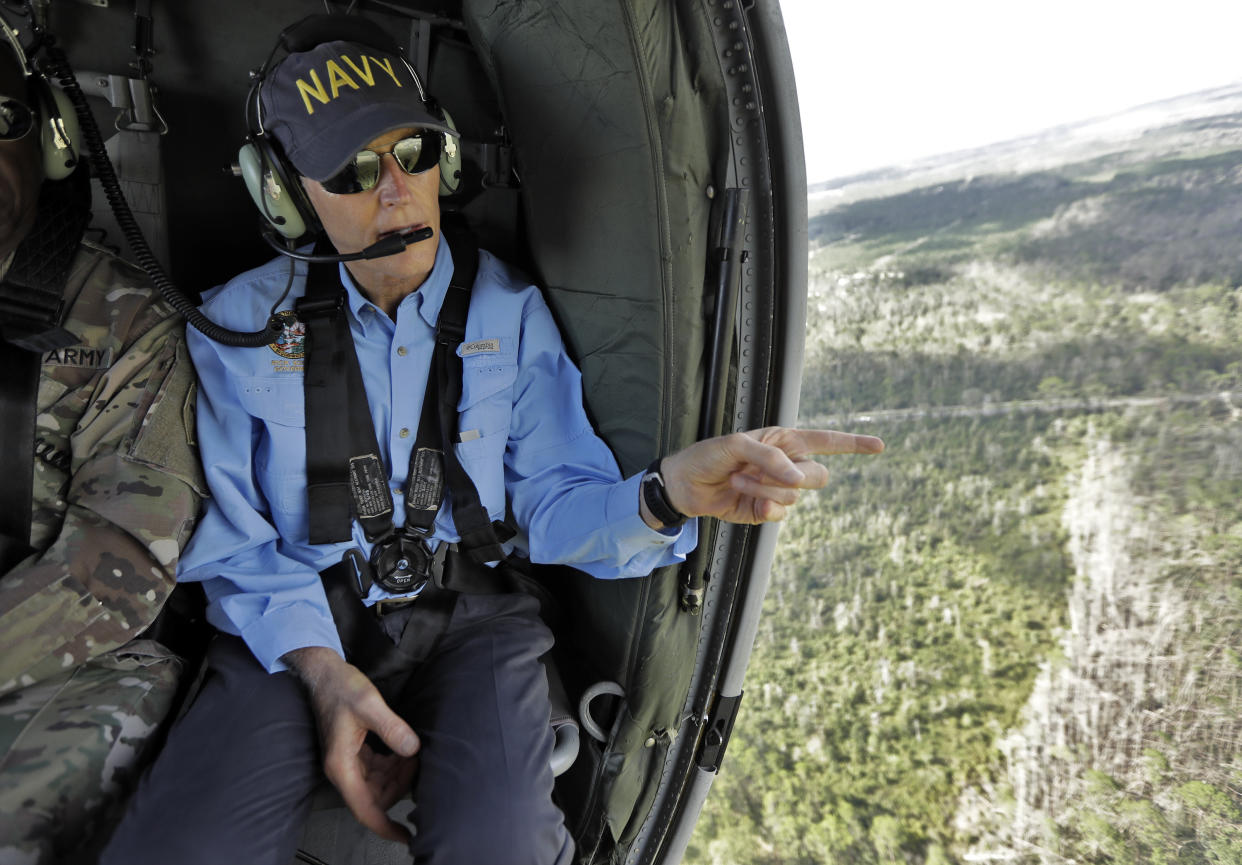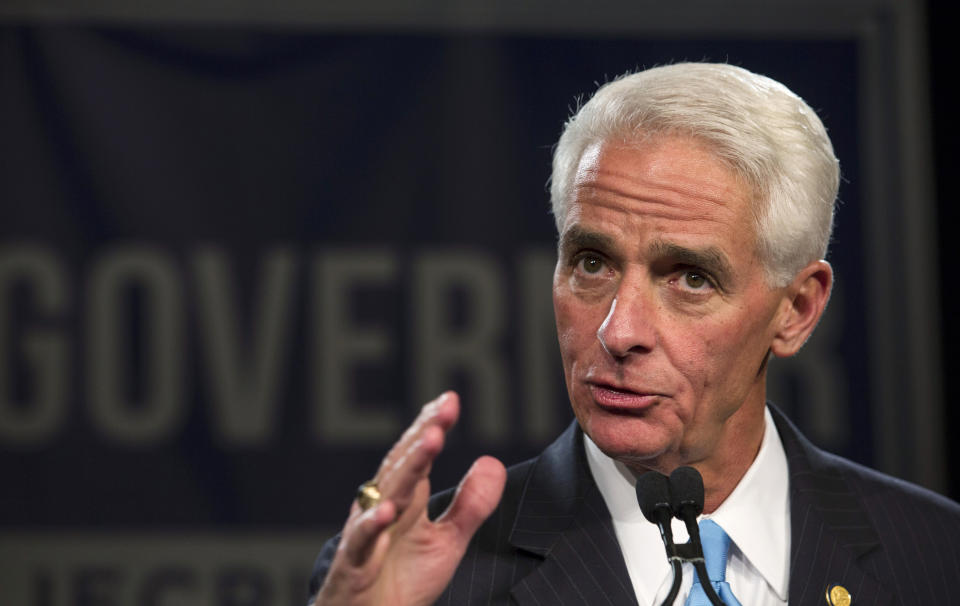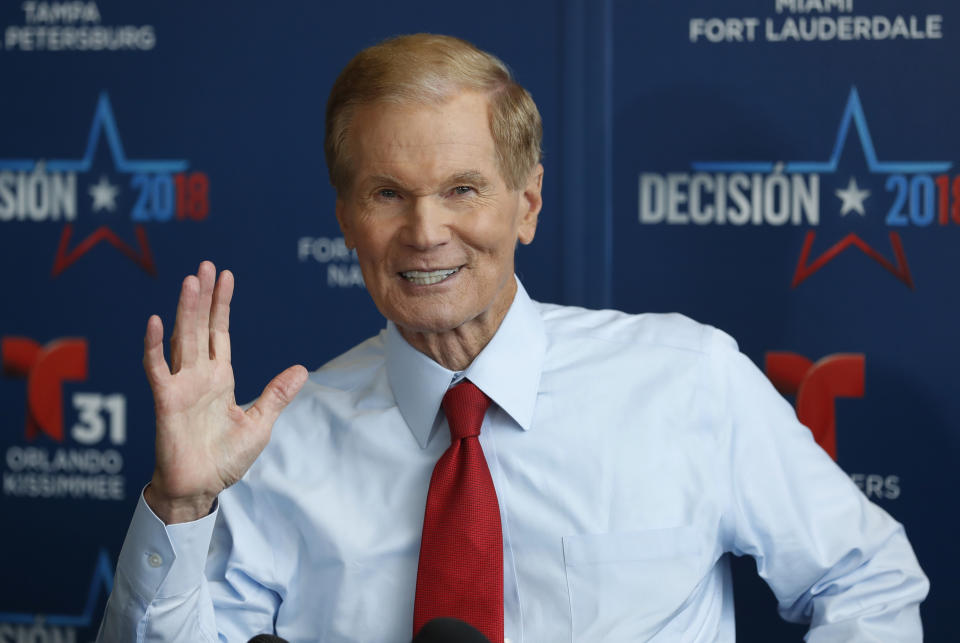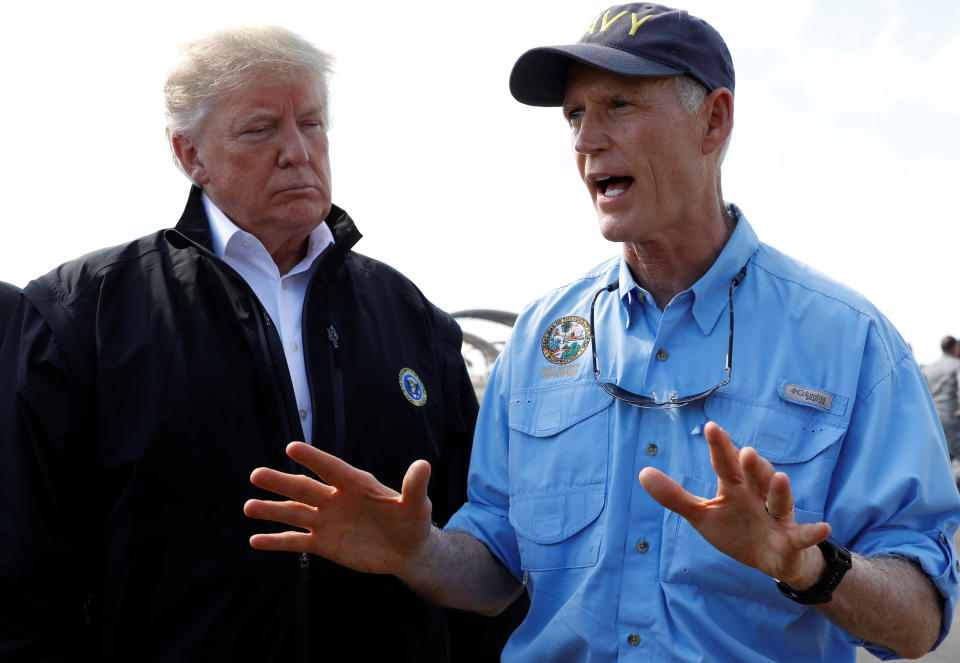Hurricane Michael reshapes Florida Senate race

Nearly two weeks after it made landfall on the Florida Panhandle, Hurricane Michael is still reshaping that state’s high-profile Senate race.
The historic storm did the most damage in counties where Republican Gov. Rick Scott, who is now challenging Democratic Sen. Bill Nelson, needs high turnout — by voters who may still be displaced from their homes and preoccupied with putting their lives back together.
“Rick Scott has twice won elections for governor by a single percentage point, and in 2014 the 64,000-vote margin he had over Democrat Charlie Crist, half of it was accumulated in the counties now reeling from Michael,” said John Kennedy, a veteran Florida political reporter who runs the Tallahassee bureau for GateHouse Media, which owns a group of state newspapers.
“These eight counties that were devastated by Michael, they’re home to 220,000 voters, and with the exception of really Democratic-heavy Gadsden County, these counties are overwhelmingly Republican-leaning,” Kennedy said on “Inside Florida Politics,” a GateHouse podcast.

“These are counties where Scott beat Crist by margins of 4 to 1 in Bay County, which is home to Panama City … 3 to 1 in Gulf County, 2 to 1 in Calhoun County. But these voters obviously are now more focused on dealing with massive power outages, homes destroyed and, really, the possibility of job losses due to the storm,” Kennedy said.
Last Thursday, Scott issued an executive order giving counties affected by the storm the authority to establish additional polling places and giving more flexibility to voters to receive absentee ballots at new or different addresses.
But while the aftermath of the hurricane may hurt Scott in those counties, it has also thrust him front and center to voters around the state. Only about 10 percent of Florida was directly affected by Michael, but most Floridians have seen news footage of Scott overseeing the state’s response.
They’ve also seen him doing so in campaign ads. Scott has officially stopped holding campaign events and has backed out of a second debate, citing the need to focus on leading the state’s response. But he has not shied away from using his perch as governor in political ads.
One of Scott’s newest ads shows him in a helicopter surveying the storm damage, in the back of a military plane helping to unload supplies, and speaking to state troopers.
Nelson has been pushed out of the limelight in the crucial final days of the campaign at a time when a million Floridians have already voted via absentee ballot and just as in-person early voting begins in much of the state Monday. About 7 million votes are expected to be cast in all.
Nelson blasted Scott last week, accusing him of “misusing his official office for political purposes by using the ongoing storm recovery as the backdrop for his new campaign ad.”

The storm has also helped Scott by pushing other, less flattering stories out of the headlines, such as a series of articles about his having a personal financial interest in projects receiving state funding. The New York Times also reported that a so-called blind trust set up by the governor to avoid conflicts of interest between his public office and his personal financial interests was not as opaque as he had claimed.
And then there are ongoing environmental crises on both the Atlantic and Gulf coasts, involving green algae and red tide, which are polluting water and killing wildlife.
Scott’s emphasis on reducing regulations to benefit the economy has made the environment a vulnerability for the Republican. But the governor has hit back at Nelson on the issue, arguing that he should have done more in all his time as a senator.
One encouraging sign for Democrats is that their usual deficit in early absentee voting is much smaller than it was in 2014, the last non-presidential-year election. In 2014 they were 11.5 points behind Republicans in mail ballots returned by this point, but they trail by only 5.5 points now, according to veteran Democratic strategist Steve Schale.
The Scott campaign on Monday said an internal poll shows the Republican leading Nelson by 5 points — 51 to 46. Public polling in the race continues to show Scott and Nelson in a dead heat.

_____
Read more Yahoo News midterms coverage:
Indiana Sen. Donnelly backs border wall in new ad, and GOP pounces
In Senate race, GOP Rep. Blackburn accuses her opponent of being a Democrat
Will Rick Scott’s playbook withstand a potential Democratic wave?
Facing doubts from women voters, Tennessee’s Phil Bredesen opens up about an assault on his wife
Photos: Honduran migrant caravan pushes north toward the U.S.




